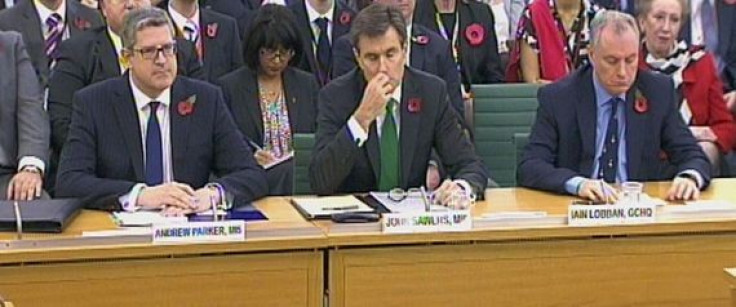Security Committee Examination of Spy Chiefs Labelled Inadequate
Former Labour minister Lord Foulkes has called the questions of the heads of MI5, MI6 and GCHQ by the Intelligence and Security Commission as inadequate.

At the first ever public meeting of the Intelligence and Security Committee (ISC) the heads of the UK's three spying agencies faced questioning from a group of MPs chaired by Sir Malcolm Rifkind.
Andrew Parker, director general of MI5,; Sir John Sawers, head of MI6; and Sir Iain Lobban, head of GCHQ all faced a cross-examination on topics including al-Qaeda, domestic espionage, oversight, the agencies' £2bn budget, their collaboration with foreign states and crucially, what effect the leaks by Edward Snowden had on national security.
However, despite the hour-and-a-half long cross-examination many felt that the ISC was too lenient on the spy chiefs, failing to ask the tough questions.
These views were vocalised by Lord Foulkes, a former Labour minister and a former member of the committee, who was speaking in the House of Lords following the meeting.
Radical scrutiny
According to Guardian reporter Rowena Mason, Lord Foulkes called into question the validity of the chairman remaining in place:
"It doesn't honestly instil confidence in the public and in parliament that the committee will undertake radical and effective scrutiny when you've got in the chair someone who has so recently [1995-97] been foreign secretary."
Rifkind has previously defended himself against such allegations saying last month: "No other country in the world, including democratic ones, has both substantial intelligence agencies and such a degree of oversight."
Lord Foukles continued his attack on the committee saying that it was simply not up to the job of scrutinising the spy agencies in the UK:
"Some of the recent reports have shown the inadequacy of the scrutiny of the intelligence and security committee of those services as it is currently comprised. I'm not surprised, frankly, by what's happened," Lord Foukles said.
Inadequate
Human rights campaign group Reprieve also hit out at the committee's weak questioning of the spy chiefs. The group's director Cori Crider told the Huffington Post: "It gave a clear demonstration, if one were needed, of just how inadequate the ISC is as a watchdog on the intelligence services."
Crider added: "The ISC's inadequacy shows why the courts are so important to ensure abuses by the secret parts of the state are kept in check - yet the Government is doing its best to undermine our justice system, introducing secret courts and cutting back legal aid and judicial review. These moves must be resisted."
While the committee did ask the three spy chiefs about the fallout from the Edward Snowden affair, it did not go into much detail. When asked about the leaks, Sir John Sawers said that al-Qaeda have been "rubbing their hands with glee" since the details were made public.
Much harder
Sir Iain Lobban said the revelations in the Guardian and other newspapers had made his job much harder.
He revealed that his agents had uncovered online conversations taking place between terrorist groups in the Middle East and Afghanistan which had been discussing the revelations in specific detail, and more importantly how to avoid detection by moving to "other communication packages."
However there was no discussion or questioning about the contents of what Snowden had revealed such as the widespread surveillance of internet traffic and the use of powerful monitoring tools like Prism, or the UK-specific programme called Tempora.
In response to the ISC meeting, a Guardian News & Media spokesperson said:
"We welcome the fact that the intelligence chiefs acknowledged that they need to be more open as a result of the Snowden disclosures, but were surprised that unlike in the US and Europe there was no substantive discussion at all about anything Snowden revealed."
The spokesperson added that the "disastrous loss of classified data" was the fault of the intelligence community and "It is only the involvement of global newspapers that prevented this information from spilling out across the web and genuinely causing a catastrophic leak."
© Copyright IBTimes 2024. All rights reserved.






